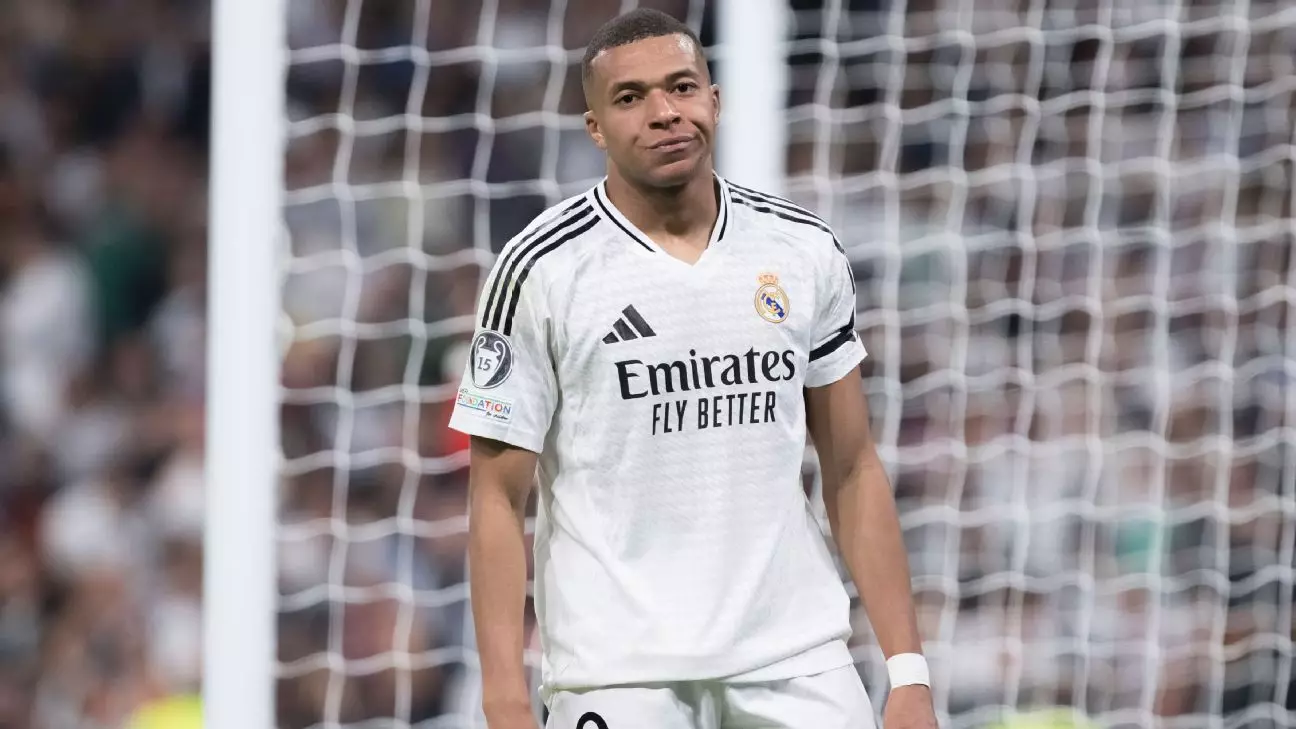Real Madrid’s current season has been shaky, triggering debates over the team’s performance and accountability. Head coach Carlo Ancelotti has called for a more collective perspective on the team’s difficulties, notably distancing Kylian Mbappé from the blame. Instead of viewing Mbappé’s reduced goal tally—two in his last nine appearances—as a solitary issue, Ancelotti insists that the challenges stem from broader team dynamics. Such an insistence highlights a critical aspect often overlooked in sports: system failures can significantly influence individual performances.
The mounting scrutiny directed at Mbappé, particularly after his missed penalty during the Champions League defeat to Liverpool, serves as a focal point in the discussion surrounding Madrid’s performance. It’s easy to simplify the narrative to a singular failure when star players falter; however, this reductionist view neglects the entirety of the situation. The young forward, still acclimating to the unique pressures of playing for Real Madrid, has demonstrated his potential with eight goals and several assists. A broader view reveals that team failures often reflect collective issues in strategy, morale, and cohesiveness despite the spotlight on individual players.
Finding Solutions in Tough Times
Ancelotti’s acknowledgment that everyone’s performance, including his own, can improve emphasizes the need for self-reflection within the club. By promoting a culture where all members, from management to players, are held collectively accountable, the team can foster an environment conducive to growth and improvement. As they hold a four-point gap behind league leaders Barcelona with a match in hand, there remains a glimmer of hope for recovery, provided that the team addresses the underlying issues rather than simply blaming a few missteps.
Injuries have further complicated Madrid’s struggles, with key players sidelined, including Dani Carvajal and Éder Militão. Such absences inevitably lead to disruptions in team chemistry and strategy, placing additional pressure on remaining players. This situation illustrates how vulnerability in one area can ripple through the entire team structure, leading to poorer performance outcomes. Ancelotti’s comments about the upcoming return of forward Rodrygo hint at a potential boost, yet the lingering absence of prominent players like Vinícius Júnior for several weeks raises concerns about how inconsistencies can linger in performance and results.
The Path Forward: Focus and Strategic Adjustments
As the January transfer window draws near, Ancelotti has tempers expectations regarding new signings. His rationale stems from the belief that mid-season shopping can often lead to ill-fitting players rather than immediate solutions. Instead, he emphasizes a commitment to harnessing the existing roster’s potential, advocating a patient approach to recovery. With optimism for improvement on the horizon, Madrid’s focus should shift towards unity and resilience, ensuring that all players are pulling in the same direction.
The struggles plaguing Real Madrid are a tapestry of interconnected issues rather than mere reflections of individual failings. For the team’s resurgence, a renewed focus on collaboration and fostering the right mindset is crucial, as they navigate the complexities of a challenging season.
